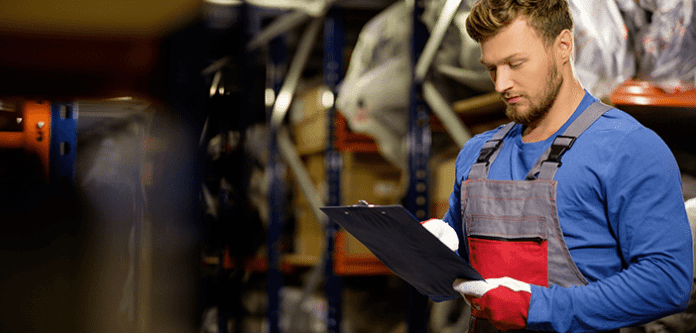Is Your Process Benefitting You In The Long Run
BY DAVID LEWIS
For decades Dealership parts departments have developed strict guidelines for one of the most important processes in that department. The process of handling special order parts (SOP).
Processes like:
- All retail transactions on non stocking parts must be pre-paid for by the Customer.
- Warranty Customer special orders whether sales or service must be signed off on by a manager.
- After receiving these parts, they will only be held for 30 days or less then they will be returned to the factory.
- Track Lost Sales
- Lost sales occur when a demand for a part is not filled. The only exception is if the Customer declined the sale.
The problem is, parts and service departments all around the country consider this a grey area and only follow the processes in place 50% of the time. These orders are money spent that is not producing income and reflects poorly on the Parts Department as a whole and management in particular. In essence, it affects all of Fixed Ops in a negative way and restricts budget accounting and growth for the entire Dealership. Parts that stagnate on your shelf for months are costing you money by preventing you from carrying other items you actually can sell.
Research tells us that special order par ts in the average Dealership Parts Department is over 60% of the obsolescence. This can become a monstrous problem if Parts Managers are not tracking sales closely and monitoring what portion of their inventory is becoming obsolete. Usually the affect this has on the bottom line will not be felt until it is too late. Since the parts inventory represents a high percentage of the Dealerships capital exposure, parts obsolescence limits their ability to correctly measure their return on investment and hence predict proper inventory turnover for future ordering.
ts in the average Dealership Parts Department is over 60% of the obsolescence. This can become a monstrous problem if Parts Managers are not tracking sales closely and monitoring what portion of their inventory is becoming obsolete. Usually the affect this has on the bottom line will not be felt until it is too late. Since the parts inventory represents a high percentage of the Dealerships capital exposure, parts obsolescence limits their ability to correctly measure their return on investment and hence predict proper inventory turnover for future ordering.
The Service Department is a large culprit of increasing parts obsolescence and for them it is counter productive. The Service Manager needs to be a diligent promoter of their staff sticking to the right processes. If the parts department has less money tied up in idle capital (obsolescence) they can stock more things like tires, brakes and other daily requested parts.
One main area of concern is the sales department. They always request an inventory of accessories that they feel certain will sell, such as, mud guards, floor mats, rear spoilers etc. When they do not sell this is another area that often goes unnoticed and can increase over aged parts quickly.
Would the Dealership let every Salespeople order and purchase every new or used vehicle where a Customer stated, “If you order it I will come back in three days and buy? Of course not! And that should be the same thought process in your Parts Department.
As a Parts Managers, you loose if you order in accessories on a hunch and 60% of the crate of parts is still on the shelf 9 months later. Now you are trying to unload them for 50 cents on the dollar, donate them or having to write them off.
With the manufacturers ratcheting down on their return policies, it is getting harder and harder for parts managers to return these SOP. You must have a plan.
The following is plan of action:
- The Parts Managers of today need to be analytical and process driven.
- Parts and Service Managers should meet once a week and discuss the SOP still sitting on the shelves and develop a plan and follow the plan.
- Retail Customers must pre pay for SOP if the vehicle is leaving, NO Exceptions!
- Accessories must have demand, and NOT be ordered in on a promissory note.
- Pre schedule the warranty Customers return appointment in the computer.
- The Service Department must have some liability if non-returnable parts are ordered and Customers do not return to pick them up.
- Have a process for SOP that are of a package quantity.
- Have a process on how to handle the SOP that the Manufacturers will not allow returned with a cost less than $5 or $10.
Ignoring parts obsolescence is costly on everyone and must be dealt with promptly if these losses are to be contained. Putting the correct system in place and sticking to it is the most efficient way to deal with this problem. It will make everyone’s job easier, more profitable and productive at the same time.



